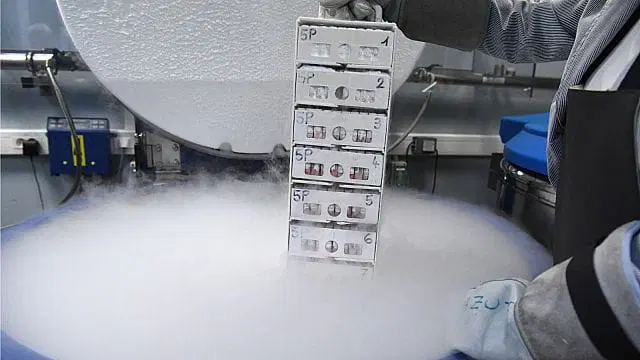Scientists plan to collect genetic material from 500,000 people of African descent to create what they believe will be the world’s largest database of population genomic information. The hope is to build a new “reference genome” – a model to compare to complete sets of individuals’ DNA – and better understand the genetic variants that affect Black people. This could eventually translate into new drugs and diagnostic tests – and help reduce health disparities.
Read More: Investing in African Green Solutions
Less than 2% of genetic information studied comes from people of African descent Organizers said the project was clearly needed, pointing to research showing that less than 2 percent of genetic information studied today comes from people of African descent.
“We are going to close this gap, and this is just the beginning,” said Anil Shanker, senior vice president of research and innovation at Meharry.
Scientists have long known that the benchmark they compare to individual genomes is based primarily on the genetic material of a single man and does not reflect the spectrum of human diversity. Although two people’s genomes – that is, a set of instructions for building and maintaining a human being – are more than 99% identical, scientists say they want to understand the differences.
Read More: Pan-African Technology Group Partners with Atlas AI to drive African Digital Transformation
The project is not linked to related research already underway. In May, scientists published four studies on the construction of In the new project, Meharry, a historically black academic health sciences center, will recruit Nashville-area patients to donate blood, then send it to the Regeneron Genetics Center, which will perform the genetic sequencing for free.
Other historically black colleges and universities in the United States, as well as the University of Zambia in Africa, will also recruit volunteers. The project organizers also said they were willing to work with other universities in Africa, as well as medical centers and health departments there. Organizers expect registration to take about five years. All information will remain anonymous.
After genetic sequencing, the data will be transferred to a repository at the Diaspora Human Genomics Institute, and the database will be provided exclusively to HBCUs and involved institutions in Africa. External researchers can access information through these institutions.
Read More: AAG 2023: Empowering Africans to Invest in Africans – Rebecca Enonchong
Partner companies will be able to use the data for research and develop drugs and diagnostic tests. The 10-year initiative also involves establishing a grant program to support research and education in genomics and related fields at Meharry, as well as broader STEM programs for elementary school children of various communities.
Each of the pharmaceutical companies involved intends to contribute $20 million to the genetics and education sides of the effort.









